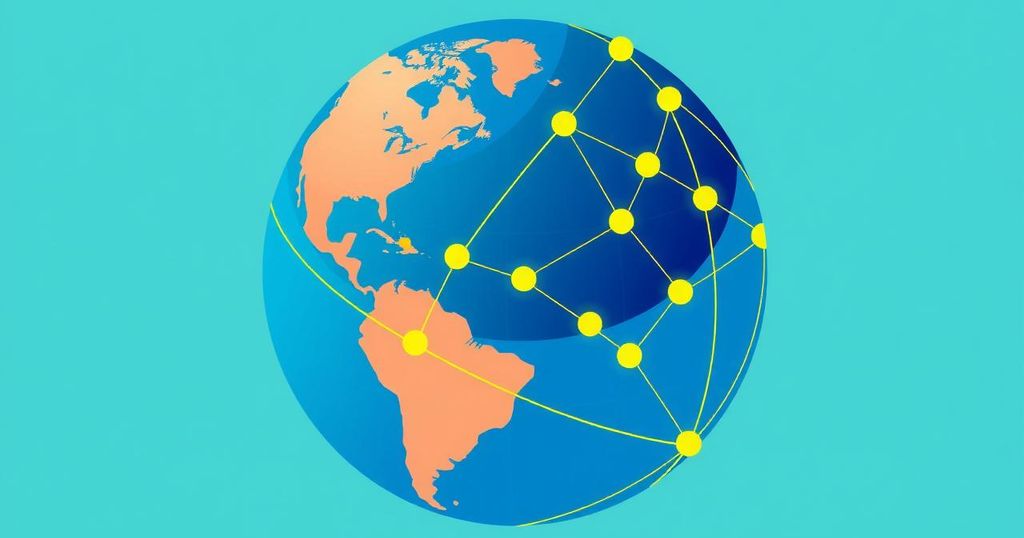The article emphasizes the urgent need for multilateralism to address global challenges such as climate change and inequality, particularly with the pivotal year 2025 approaching. Key events like the FfD4, COP30, and G20 Summit are highlighted as essential for reinforcing cooperative efforts and achieving significant progress towards a sustainable and inclusive future. It stresses the importance of reforming the global financial architecture and ensuring commitments translate into actionable outcomes for developing countries.
The necessity for enhanced multilateralism is more pressing than ever amidst increasing unilateralism, particularly in addressing global challenges like climate change and inequality. The year 2025 stands as a crucial juncture with multiple interrelated issues that urgently require substantial and coordinated action rather than a retreat into isolationist tendencies.
Three key global events are anticipated in 2025, notably the Fourth International Conference on Financing for Development (FfD4) in Seville, the Conference of the Parties (COP30) in Belém, and the G20 Summit in Johannesburg. These gatherings present vital opportunities for fostering a more equitable, inclusive, and sustainable global framework, with the expectation of delivering significant progress rather than adhering to conventional methods.
There is an acute need for robust dialogue and cooperation internationally, as faith in multilateral institutions faces challenges. By emphasizing the ambitions and efficacy of multilateral efforts, one can reaffirm their importance in addressing collective issues. Initiatives such as the 2030 Agenda and the Paris Agreement must serve as foundational pillars during the FfD4, COP30, and G20 meetings to bolster commitments towards sustainable development and shared prosperity.
Concerning income inequality, the global financial system requires urgent reform to empower nations in the Global South with equitable access to resources and decision-making platforms. It is essential to promote innovative financing strategies, advance debt relief efforts, and proactively address the financial barriers that hinder development in these regions. Under South Africa’s G20 presidency, these areas will be prioritized to alleviate financial strains on developing countries.
Furthermore, achieving just climate transitions remains a critical challenge for many nations due to inadequate financial resources. The COP30 in Belém, situated in the Amazon, must translate sustainable finance commitments into actionable results, focusing on ambitious Nationally Determined Contributions (NDCs) and adequate funding aimed at climate initiatives. Increasing climate adaptation financing and mobilizing private investments are crucial goals.
In addressing global security threats and fostering solidarity, the Seville, Belém, and Johannesburg meetings should exemplify effective multilateral collaboration. Each conference offers unique contributions towards financial stability and addressing climate challenges, reinforcing the necessity for nations to band together around shared interests. As 2025 approaches, it is imperative for all stakeholders—including governments, international organizations, the private sector, and civil society—to engage actively in reinforcing multilateralism, given the significant stakes involved in global stability and prosperity.
In conclusion, the imperative for revitalizing multilateralism in 2025 is clear. The global community must address pressing challenges such as inequality and climate change through coordinated efforts. The upcoming conferences in Seville, Belém, and Johannesburg are pivotal opportunities to reaffirm commitments to sustainable development and shared prosperity, ensuring that all nations, particularly those in the Global South, have a voice and resources to thrive. Emphasizing collaboration and action-oriented strategies will foster a more equitable world for all.
Original Source: www.aljazeera.com






